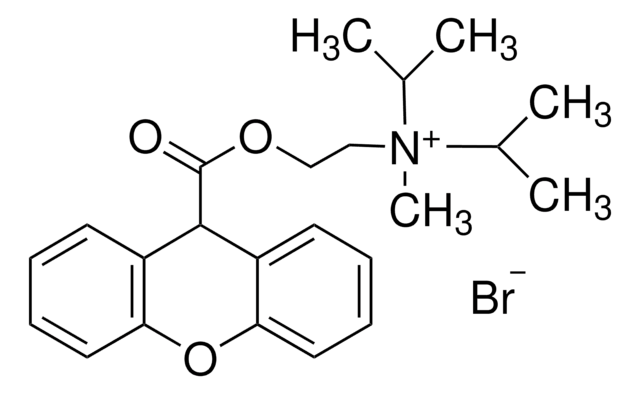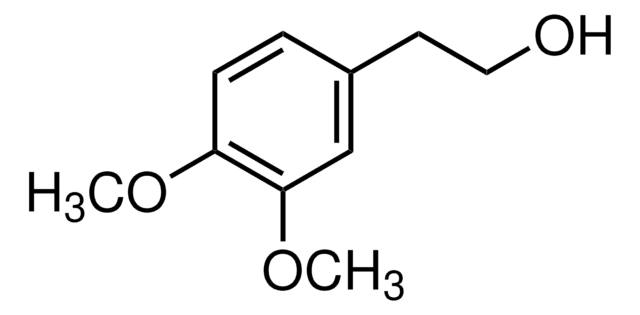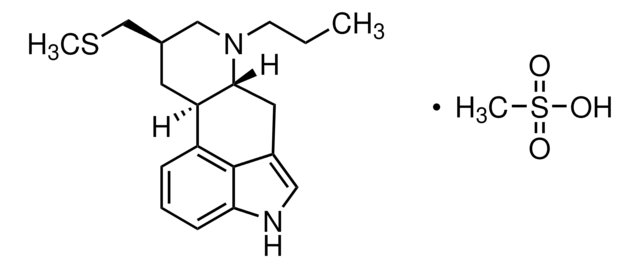C2510000
Codergocrine mesilate
European Pharmacopoeia (EP) Reference Standard
Synonym(s):
Ergoloid mesylate salt, Dihydroergotoxin mesylate salt
About This Item
Recommended Products
grade
pharmaceutical primary standard
API family
codergocrine
manufacturer/tradename
EDQM
application(s)
pharmaceutical (small molecule)
format
neat
storage temp.
2-8°C
SMILES string
CS(O)(=O)=O.CC(CO)NC(=O)C1CC2C(Cc3c[nH]c4cccc2c34)N(C)C1
InChI
1S/C19H25N3O2.CH4O3S/c1-11(10-23)21-19(24)13-6-15-14-4-3-5-16-18(14)12(8-20-16)7-17(15)22(2)9-13;1-5(2,3)4/h3-5,8,11,13,15,17,20,23H,6-7,9-10H2,1-2H3,(H,21,24);1H3,(H,2,3,4)
InChI key
ONYMVHQTXOEAOV-UHFFFAOYSA-N
Looking for similar products? Visit Product Comparison Guide
General description
Application
Packaging
Other Notes
Choose from one of the most recent versions:
Certificates of Analysis (COA)
Sorry, we don't have COAs for this product available online at this time.
If you need assistance, please contact Customer Support.
Already Own This Product?
Find documentation for the products that you have recently purchased in the Document Library.
Our team of scientists has experience in all areas of research including Life Science, Material Science, Chemical Synthesis, Chromatography, Analytical and many others.
Contact Technical Service


![8-OXABICYCLO[3.2.1]OCTAN-3-OL AldrichCPR](/deepweb/assets/sigmaaldrich/product/structures/337/559/e1136179-6597-4676-ba2a-b6157de784c8/640/e1136179-6597-4676-ba2a-b6157de784c8.png)




